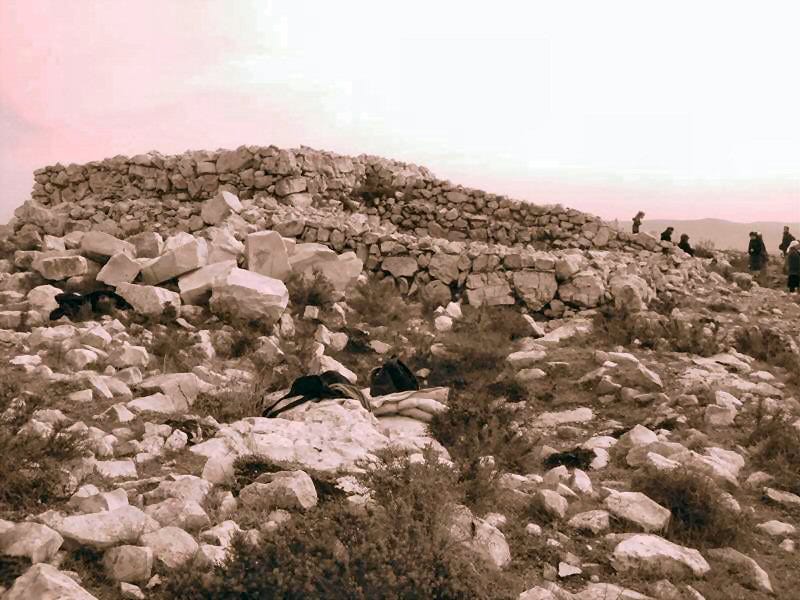Christian reflections on the Mt. Ebal altar
What can ancient Israel's worship tell us about our own?
Deuteronomy 27:5-12
And you shall build an altar there to the Lord your God, an altar of stones on which you have not used an iron tool. You must build the altar of the Lord your God of unhewn stones. (Deut. 27:5-6a, NRSVA)
Alongside the plastered stones that would record “all the words of this law” (Deut. 27:3), Israel was also to erect an altar on Mt. Ebal. In the broader culture of the ancient Near East, erecting an altar in a prominent location wouldn’t have been particularly noteworthy.
It’s not even unprecedented for an altar to be built of unhewn stones. Other cultures did the same – though this typically seems to have been a matter of necessity rather than choice. Israel, thus, breaks from the normal pattern. We might expect nomadic ex-slaves to build with readily-available materials in the wilderness. Upon entering the Promised Land, however, with its established cities and properties, we would expect the primitive style to be replaced by more aesthetically refined altars.
The question is, why doesn’t that happen? Why does God care whether the stones are cut or uncut? I don’t recall that Scripture ever gives us an explicit statement on this matter, but I can hazard a guess.
I suspect the explanation is tied to the altar's purpose. In essence, an altar is a place dedicated to repairing and restoring the divine-human relationship. Yes, this was done through sacrifice, but the point wasn’t the sacrifice itself. The sacrifice was a method for repairing the relationship.
Consequently, my guess is that God didn’t want people cutting and carving on the altar stones to prevent them even starting down the road to thinking that they were contributing to repairing the relationship. This doesn’t mean that humans don’t have a necessary response to the atoning work at the altar. It is simply to say that humans contribute nothing to that atonement.
We’re used to thinking along these lines with regard to Christ’s sacrifice. The principle holds, however, even in the Old Testament. [Make no mistake, the Old Testament speaks of worshippers as having been forgiven -- not as people who would receive forgiveness at some undetermined future date (e.g., Ps. 32:5)].
The individual Israelite may have brought a lamb or goat to the altar as an offering; but once there, the idea was that the man’s sins were laid on the animal.
"Okay," you could well ask, "so now what? How did that take care of repairing a relationship with Yahweh? Are we to understand that – in contradiction to Hebrews 10:4 – the mere blood of bulls and goats was taking away sin?"
I don’t think so. Sin has always, and only, ever been resolved by God. Atonement has always, and only, ever been the work of God. Humans do not “contribute” to atonement – anymore than Israel contributed to her release from Egyptian slavery. We receive it as a gift from the gracious hand of God; And in grateful response, we joyously embrace and attempt to live out His instruction for life.


